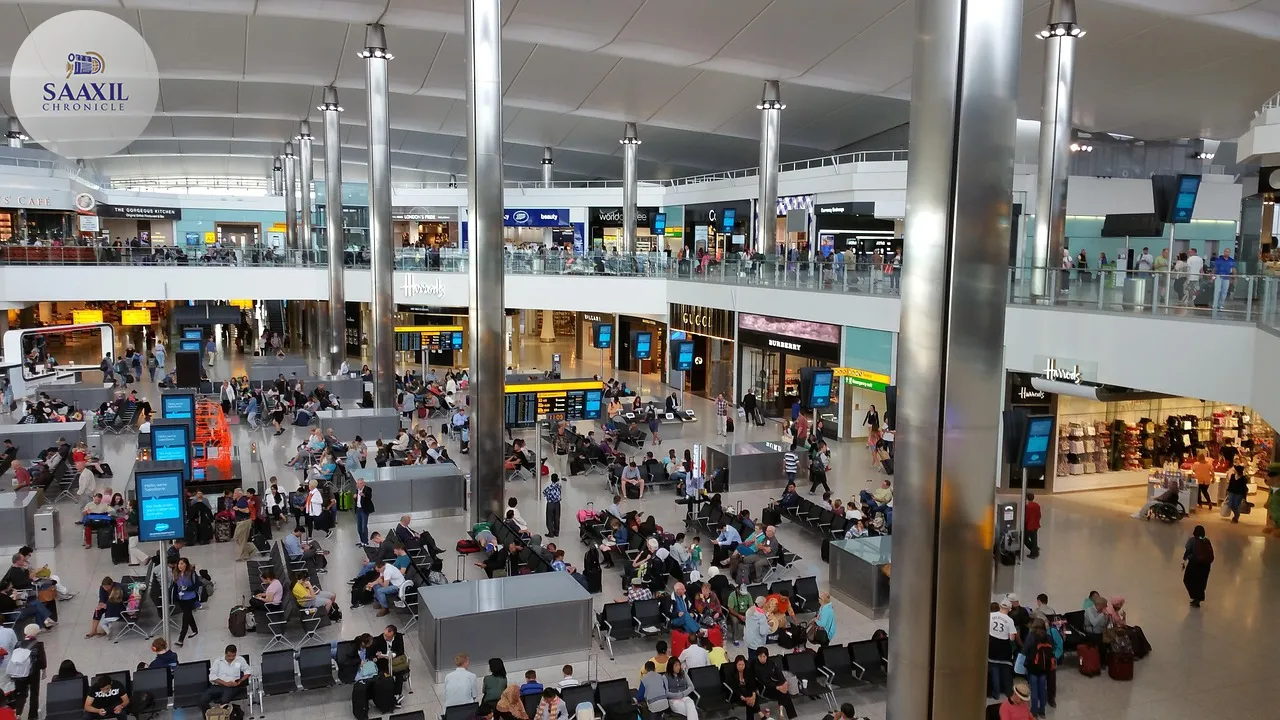A potential closure of Heathrow Airport, one of the busiest airports in the world, threatens to disrupt over 1,351 flights, according to data from Flightradar24. The looming shutdown, triggered by planned industrial actions, poses a significant challenge to the aviation industry and travellers alike. Key stakeholders, from airlines to passengers, are bracing for the impact.
Industrial Action Sparks Concern
The announcement of planned strikes by airport staff has intensified concerns over the continuity of operations at Heathrow. The strikes are scheduled to begin next week, with workers demanding better pay and working conditions. The Unite union, representing a significant number of Heathrow employees, has been in negotiations with airport management, but talks have so far failed to reach a resolution.
The industrial action, set to occur at the peak of the holiday season, threatens to disrupt travel plans for thousands of passengers. With Heathrow handling over 80 million passengers annually, the potential closure could have far-reaching consequences for both domestic and international travel.

Impact on Airlines and Passengers
Airlines operating out of Heathrow are scrambling to make alternative arrangements. British Airways, Virgin Atlantic, and other major carriers have already begun notifying passengers of potential delays and cancellations. The airlines face the daunting task of re-routing flights or finding alternative airports, which may not have the capacity to accommodate the influx of diverted flights.
Passengers, meanwhile, are caught in a web of uncertainty. Many have expressed frustration over the lack of clarity and the potential impact on their travel plans. “I booked my holiday months ago, and now I might not get to go,” said Lisa Thompson, a passenger scheduled to fly to New York next week. Travellers are advised to check with their airlines and monitor updates from Heathrow Airport for the latest information.
Economic Implications of Heathrow’s Closure
The potential closure of Heathrow could have significant economic repercussions. As a major hub for international trade, the airport plays a crucial role in the UK economy. A prolonged shutdown could affect the import and export of goods, leading to supply chain disruptions and potential financial losses for businesses reliant on timely deliveries.
Moreover, the tourism industry, already recovering from the impact of the pandemic, could face setbacks. The uncertainty surrounding travel could deter tourists, impacting revenues for hotels, restaurants, and other businesses dependent on visitor spending.
Government and Industry Response
The UK government and aviation industry stakeholders are closely monitoring the situation. Transport Secretary Grant Shapps has urged both parties to return to the negotiating table to avert the crisis. “A resolution is in everyone’s interest, and we encourage a swift and fair agreement,” Shapps stated in a recent press release.
In response to the potential disruption, contingency plans are being developed. The Civil Aviation Authority (CAA) is working with airlines to ensure passenger rights are upheld and that alternative travel arrangements are made where possible.
Looking Ahead: Potential Resolutions and Future Impacts
As the deadline for strike action looms, all eyes are on the negotiations between the Unite union and Heathrow management. A resolution could prevent the closure and mitigate the impact on flights and passengers. However, if an agreement is not reached, the consequences could be felt long after the industrial action concludes.
The situation highlights the vulnerabilities within the aviation industry and the need for robust contingency planning. It also underscores the importance of addressing worker grievances to prevent future disruptions.
In the coming days, stakeholders will be watching developments closely, hoping for a resolution that ensures the smooth operation of one of the world’s most important airports. The outcome will likely set a precedent for handling similar situations in the future, influencing labour relations and operational strategies in the aviation sector.
As negotiations continue, the focus remains on finding a solution that balances the needs of workers, airlines, and passengers, ensuring that Heathrow remains a vital gateway for global travel.





